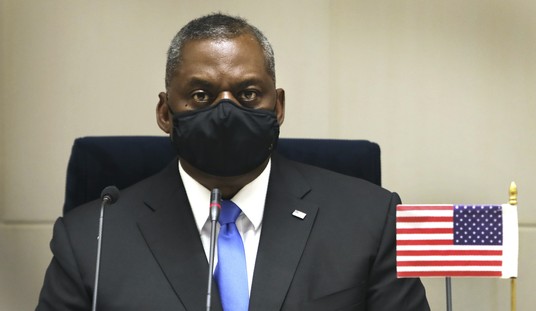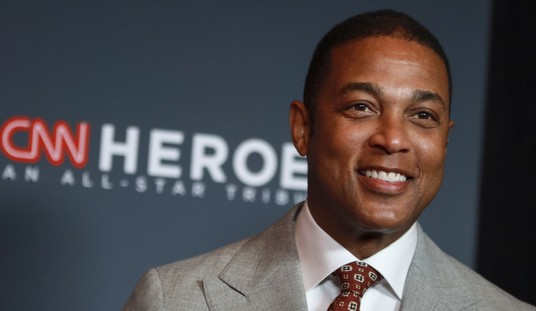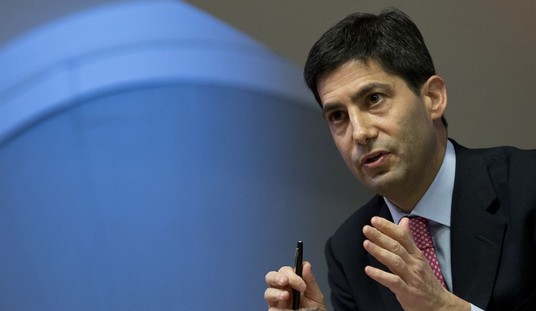
A brave rape survivor named Katherine Prudhomme-O’Brien has completely upended the Hillary Clinton campaign’s easy slide towards the Presidency. For those who don’t know, Prudhomme-O’Brien is a New Hampshire state representative who attended a Hillary Clinton town hall earlier this week and decided that she would not be one of the growing number of women whose complaints of rape were ignored by Hillary Clinton.
In spite of angry glares from the crowd around her, and Clinton repeatedly ignoring her, and uncomfortable sniffs from the media present, Prudhomme-O’Brien stood up and repeatedly demanded that Hillary address the allegations that her husband raped Juanita Broaddrick, and that she participated in the coverup. Repeatedly and doggedly O’Brien confronted Hillary until Hillary snapped and shouted her down.
Now, suddenly, it was a news story. Numerous prominent media outlets carried the story, initially to describe the rudeness of an elected Republican in New Hampshire. But in order to properly convey the context for Hillary’s outburst, they had to reveal what she was being heckled about. Suddenly, the name “Juanita Broaddrick” was a subject of public conversation again, to the point where a Vox reporter/Clinton stenographer actually called Juanita Broaddrick at home to ask whether an active Twitter account was hers. And it was. And she was still saying that Bill Clinton raped her. The issue sufficiently reached the public’s attention that Joy Behar was even forced to comment on it during yesterday’s episode of The View.
One of the things that’s notable about Broaddrick’s allegations is that she raised them after Bill Clinton was no longer eligible for re-election, and after his impeachment trial. In other words, there was no obvious political reason for anyone (including Broaddrick) to push false allegations about Clinton. In fact, Broaddrick initially refused to speak for the media for years when the intial rumors came up, and only finally admitted that the rumors were true in February of 1999. She was so reticent to discuss the matter publicly that she even denied the rape occurred in an affidavit filed in the Paula Jones case. She claimed, specifically, that Clinton brutally sexually assaulted her during his 1978 Gubernatorial campaign in Arkansas.
Broaddrick’s story even hits the other hot button for massive liberal coverage, because she also alleges that the overwhelmingly male power structure in Arkansas conspired to intimidate her into silence about her allegations. Broaddrick’s allegations are furthermore relevant to the current political conversation (certainly more than fake concern over Cruz’s eligibility to be elected President) because she specifically alleges that Hillary herself participated in the coverup, and additionally because Hillary is now doing joint campaign appearances with her accused rapist husband.
Now listen, I obviously wasn’t in the room when it happened and I don’t know either Juanita Broaddrick or Bill Clinton on a personal level to be able to judge them from personal knowledge. I do know that I have personally witnessed Bill Clinton lie to my face more times than I can count, whereas to my knowledge Juanita Broaddrick never has.
Furthermore, I find her credibility bolstered based upon her clear reluctance to come forward, by her lack of obvious political or financial motivation to lie, and by the fact that she is the caboose of an extraordinarily lengthy train of women who have come forward and accused Bill Clinton of aggressively and inappropriately approaching them while in a state of sexual arousal. Everyone more or less assumes Bill Cosby is a serial rapist on the strength of roughly equivalent evidence.
Still, I don’t know for sure whether Juanita Broaddrick was telling the truth or not. That having been said, I have been told that I no longer have to care. No longer am I (or presumably anyone else) allowed to think that a woman who levels false rape allegations against a man deserves anything but praise for her bravery in bringing the issue of rape to light. The fact that an actual human male’s reputation and life might be ruined if he is falsely accused of rape is not to be a matter of concern and anyone who suggests that it is might as well be guilty of rape themselves.
No seriously, that’s literally what noted feminist author Jessica Valenti said about the widely discredited accusations of “mattress girl” Emma Sulkowicz. Both the headline and thesis of her piece were – not kidding – “We can’t stop rape if we prize men’s reputations over women’s safety.”
As the national conversation on campus rape grows – from White House task forces to magazine covers – there are words we hear again and again:hysteria, panic, wrongfully accused. The concern espoused by pundits and anti-feminists is that renewed actions to end sexual assault are an overreaction that, at best, will lead to confusion between the sexes and, at worst, will ruin men’s lives.
One can argue the merits of including “hysteria” and “panic” in our rhetoric about the public discussion concerning rape; however, “wrongfully accused” was previously thought by reasonable people to be a different kind of claim. It used to be considered a difference of kind, not degree, when someone said “this rape didn’t happen and a man’s life has been unjustifiably ruined” as opposed to “rape in general is an overblown concern.” But apparently that distinction doesn’t exist anymore, and questioning the factual details of stories that accuse identifiable people of rape is creating an environment where rape is more likely to occur.
If you think that was bad, the feminists’ reaction to the implosion of Rolling Stone’s UVA Rape Hoax were even worse. When the story of the woman “Jackie” was conclusively debunked to the point that even Rolling Stone shamefacedly retracted the story, Valenti said that the fault for the entire incident lay not with Jackie, but with the people who questioned her:
Rolling Stone just doesn’t get it. Months after the magazine published a widely-criticized article about an alleged gang rape at the University of Virginia, the details of which proved unverifiable, those responsible still refuse to take any real responsibility. Instead, editors at the magazine once again placed the blame for their errors where it so often ends up when it comes to sexual assault: on a young woman who alleges she was raped.
The problem, of course, is that it wasn’t just that the “details of Jackie’s rape” were “unverifiable,” it’s that her central factual claims were disprovable by historically verifiable facts. It is no doubt true that Rolling Stone did not take as much blame as they should have, nor show adequate institutional reflection for the gravity of their error, especially since subsequent events have strongly suggested that Sabrina Rubin Erdely was a serially shoddy rape reporter.
However, does that mean that “Jackie” is not responsible at all for having told a story that was a) demonstrably false and b) placed a pall of serious criminal accusations over identifiable young men? Are the possible damage to the future careers and lives of “Jackie”‘s victims not worth even considering?
And if you’re tempted to dismiss this trend on account of the fact that Jessica Valenti is a known crazy person, how about the Washington Post, who literally titled an article (AFTER Rolling Stone retracted their story), “No Matter What Jackie Said, We Should Automatically Believe Rape Claims.” (Note: the headline has since been stealth changed from “Automatically” to “Generally,” but if you check the URL, you will see the headline as it originally appeared).
You know who allegedly believed that sentiment, or at least did as of last November? Hillary Clinton.
Every survivor of sexual assault deserves to be heard, believed, and supported. https://t.co/mkD69RHeBL
— Hillary Clinton (@HillaryClinton) November 23, 2015
Or how about Crystal Mangrum, the now convicted-murderer who accused the Duke Lacrosse team of gang raping her with a story so facially sensationalistic it should have automatically set every reporter’s skepticism levels to 11. Instead, almost all of them acted like our good friend Nancy Grace here, night after night continually dismissing the huge mountains of evidence that she was full of crap.
So here wanders Juanita Broaddrick into the national picture. I see no obvious gross embellishments or factual implausibilities in her story that would cause any reasonable person to dismiss it out of hand. Her reticence in addressing the story until the point of political danger was past for Clinton lends it credibility, or at least removes the most obvious motivation for falsifying such a story. And it fits with a pattern of a man who was known, at the very least, to have grossly abused his power as the leader of the free world by forcing his attentions on an unpaid 22-year-old White House Intern.
I am not even aware of any effort that has ever been made to rebut the factual allegations in Broaddrick’s story. I am not aware that Clinton personally has denied it, or has attempted to offer any proof that he was, for instance, otherwise engaged when the alleged sexual assault occurred, thus casting doubt on Broaddrick’s story. Surely his schedule as a political candidate is relatively well documented in a log somewhere, right?
If the media can determine that General Westmoreland was not in the same city as Ben Carson on a date more than 30 years ago, surely they could perform the same feat with Bill Clinton and Juanita Broaddrick, if they tried?
Nor am I aware that anyone else has really even attempted to say that Broaddrick is lying for any identifiable reason. Hell, even Joy Behar just said that she would still vote for Clinton even if he did it. The closest anyone has come is noting that Broaddrick attended a fundraiser for Clinton three weeks after the alleged assault took place; given that Emma Sulkowicz’s months-long flirtation with her alleged rapist after the alleged rape is not supposed to be reason to disbelieve her, I see no reason why Broaddrick’s story should be dismissed for a much less compelling reason.
But from my perspective, based on everything I have been led to understand by feminists over the last decade or so, the mere fact that Broaddrick has accused Clinton of raping her is enough to make her a hero, and worthy of copious appearances on television and maybe a private invitation to the State of the Union address from a sitting United States Senator.
And if anyone should even suggest that what Ms. Broaddrick is saying is untrue, or that it’s a bad thing for her to say something that might unfairly tar Bill Clinton’s reputation, they should be ashamed of their sexist attitudes and report immediately to their human resources department for sensitivity training.














Join the conversation as a VIP Member